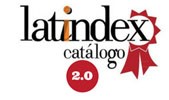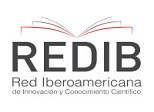Motivation, Self-Esteem and Self-Care Methodology as a Transformative Strategy in the Elderly
DOI:
https://doi.org/10.69890/hallazgos21.v6i1.504Keywords:
Education;, Adult education;, Alternative education;, Social education;, Inclusive education.Abstract
The Government of Reconciliation and National Unity in Nicaragua, in compliance with Law No. 720, inaugurated the School of Literacy for the Elderly in 2017, integrating to the accompanying commission the National Technological Institute (INATEC) and the Ministry of Family Economy (MEFCCA ), with the aim of building a pertinent educational plan, whose practical output, once the training course is finished, would be the creation of enterprises and projects that dignify the elderly, from their own cognitive strengths to transform their realities. This makes the author venture into an anthropogogical practice that provides a solution to the aforementioned, from the social, emotional and popular articulation, as part of a critical and political methodological process, whose purpose consists of the integral transformation of the realities and needs of learners in their social contexts. The well-being as a driving force and motivation in teaching; and teaching as a horizontal practice, where we are all part of. As a result, of all the protagonists enrolled in the Literacy School in 2020, 40% completed their training process, designing and executing an enterprise; that doubles the results compared to 2019, under the School of Values methodology.
References
Baril, J. (1987) La Danza Moderna. Biblioteca de Técnicas y Lenguajes Corporales. Buenos Aires, Argentina: Paidos Iberica Ediciones S. A .
Cárdenas Velasco, R.F. (2017). La Antropogogía como ciencia de la educación permanente del ser humano en la formación profesional docente. Retos de la Ciencia, 1(2), 150-161.
Castro-Gómez, S. (1993). La colonialidad del saber: eurocentrismo y ciencias sociales. Perspectivas Latinoamericanas. En E. Lander (Ed.). La colonialidad del saber: eurocentrismo y ciencias sociales. Buenos Aires: CLACSO, 56-98.
Corona-Berking, S. (2020). Producción Horizontal del Conocimiento. Alemania: Centro María Sibylla Merian de Estudios Latinoamericanos Avanzados en Humanidades y Ciencias Sociales CALAS.
Corona-Berking, S. (2020). Horizontalidad: metodologías críticas en ciencias sociales. Consejo Latinoamericano de Ciencias Sociales, CLACSO.
Dewey, J. (1967). Cómo pensamos. Nueva exposición de las relaciones entre pensamiento reflexivo y proceso educativo. Barcelona: Paidós.
Díaz, C. (2010). Hacia una pedagogía en clave decolonial: entre aperturas, búsquedas y posibilidades. Tabula Rasa, (13), 217-233.
Engeström, Y. (1999). Innovative learning in work teams: Analyzing cycles of knowledge creation in practice. En Y. Engeström, R. Miettinen & R-L. Punamäki (Eds.). Perspectives on activity theory. Cambridge: Cambridge University Press.
Freire, P. (1968) Pedagogía del Oprimido. Madrid: Silgo XXI Editores.
Freire, P. (1968). La educación como práctica de la libertad. Madrid: Siglo XXI Editores.
Freire, P. (1993) Pedagogía de la Esperanza: un reencuentro con la Pedagogía del Oprimido. Madrid: Silgo XXI Editores.
Giroux, H. (2003). Pedagogía y política de la esperanza: teoría cultural y enseñanza: una antología crítica. Buenos Aires: Amorrortu.
Chakravorty Spivak, G., & Giraldo, S. (2003). ¿Puede Hablar El Subalterno?. Revista Colombiana de Antropología, 39,297-364. Recuperado de https://www.redalyc.org/articulo.oa?id=1050/105018181010
Mignolo, W. (2008). La opción de-colonial: desprendimiento y apertura. Un manifiesto y un caso. Tabula Rasa, (8), 243-281.
Núñez-Cubero, L. (2009). Emociones, cultura y educación: un enfoque multidisciplinar. Sevilla: Universidad de Sevilla, Secretariado de Publicaciones.
Núñez-Cubero, L. (2015) Cultura emprendedora y educación. Sevilla: Universidad de Sevilla, Secretariado de Publicaciones.
Ogbu, J. (1992). Understanding Cultural Diversity and Learning. New Jersey: Educational Researcher.
Piaget, J. (1979). Tratado de lógica y conocimiento científico. Naturaleza y métodos de la epistemología. Buenos Aires: Paidós.
Rockwell, E. (2007). Huellas del pasado en las culturas escolares. Revista de Antropología Social, 175-212.
Vygotsky, L.S. (1978), Pensamiento y lenguaje. Madrid: Paidós.
Wenger, E. (1998). Communities of Practice: Learning, Meaning, and Identity. England: Cambridge University Press.
Wolcott, H. (1993). El maestro como enemigo. Lecturas de antropología para educadores. En: Velasco, H., Garcia
Castaño, F. J., & Díaz de Rada, Á. (Eds.). Lecturas de antropología para educadores. Madrid: Editorial Trotta.
Published
How to Cite
Issue
Section
License
Los artículos enviados a la Revista Científica Hallazgos21 deberán ser totalmente originales e inéditos.
Los autores son los responsables de los textos y las imágenes incluidas en los artículos y no necesariamente reflejan el pensamiento de la editorial o de la Pontificia Universidad Católica del Ecuador, Sede Esmeraldas (PUCESE).
Los autores disponen cederle a la Revista Científica Hallazgos21 todos los derechos inherentes para la edición, publicación y distribución o divulgación del mismo.
Se autoriza a las revistas firmantes de los acuerdos de Encuentros de Revistas Latinoamericanas para reproducir en parte o totalmente los artículos con la sola mención de la fuente claramente señalada.







